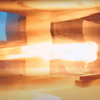Processing Your Payment
Please do not leave this page until complete. This can take a few moments.
- News
-
Editions
-
- Lists
-
Viewpoints
-
Our Events
-
Event Info
- Business Leaders of the Year Reception 2025
- Women's Leadership Forum 2025
- On the Road with Mainebiz in Bethel
- Health Care Forum 2025
- On The Road with Mainebiz in Greenville
- On The Road with Mainebiz in Waterville
- Small Business Forum 2025
- Outstanding Women in Business Reception 2025
- On The Road with Mainebiz in Bath
- 60 Ideas in 60 Minutes Portland 2025
- 40 Under 40 Awards Reception 2025
- On The Road with Mainebiz in Lewiston / Auburn
- 60 Ideas in 60 Minutes Bangor 2025
Award Honorees
- 2025 Business Leaders of the Year
- 2024 Women to Watch Honorees
- 2024 Business Leaders of the Year
- 2023 NextUp: 40 Under 40 Honorees
- 2023 Women to Watch Honorees
- 2023 Business Leaders of the Year
- 2022 NextUp: 40 Under 40 Honorees
- 2022 Women to Watch Honorees
- 2022 Business Leaders of the Year
-
-
Calendar
-
Biz Marketplace
- News
- Editions
- Lists
- Viewpoints
-
Our Events
Event Info
- View all Events
- Business Leaders of the Year Reception 2025
- Women's Leadership Forum 2025
- On the Road with Mainebiz in Bethel
- Health Care Forum 2025
- On The Road with Mainebiz in Greenville
- + More
- On The Road with Mainebiz in Waterville
- Small Business Forum 2025
- Outstanding Women in Business Reception 2025
- On The Road with Mainebiz in Bath
- 60 Ideas in 60 Minutes Portland 2025
- 40 Under 40 Awards Reception 2025
- On The Road with Mainebiz in Lewiston / Auburn
- 60 Ideas in 60 Minutes Bangor 2025
- - Less
Award Honorees
- 2025 Business Leaders of the Year
- 2024 Women to Watch Honorees
- 2024 Business Leaders of the Year
- 2023 NextUp: 40 Under 40 Honorees
- 2023 Women to Watch Honorees
- 2023 Business Leaders of the Year
- + More
- 2022 NextUp: 40 Under 40 Honorees
- 2022 Women to Watch Honorees
- 2022 Business Leaders of the Year
- Nomination Forms
- Calendar
- Biz Marketplace
Fair settlements | Resolving construction disputes enters a new era
Attorneys, Bernstein Shur construction and litigation practice group, Portland
In the construction industry, finding yourself in the middle of a dispute is a matter of “when,” not “if.” Unfortunately, the current methods of resolving construction disputes — the court systems and private arbitration — are often too costly and burdensome. As a result, the industry is reaching for new methods of conflict resolution.
Construction disputes come in all shapes and sizes. Someone owes you money and won’t pay because they say the work was defective. Someone claims that you owe them money; you say they are wrong. A building leaks, a parking lot heaves, the excavator hits ledge or the shrubbery all dies as soon as it is planted. The parties inevitably “lawyer up” and may rush into court.
Clients learn quickly that the price of fighting is high and the road to a trial in Maine courts is long and arduous. Lawyers are accustomed to an exhaustive court process, called discovery, by which parties obtain information from and about each other. The new field of “electronic discovery,” where thousands of dollars can be spent plumbing for emails, text messages and deleted files, only makes matters worse. Depositions take days, procedural deadlines abound and the case slowly moves toward a trial. Of course, actual trials are vanishing because the risks are high and the costs great.
To folks in the construction industry, this tune sounds familiar. Money is to be made when roads and bridges are built and buildings are erected, not when you are paying lawyers to fight.
The high cost of the court system is precisely what led to the birth of private arbitration. It became popular because it allowed parties to select an expert in the field to resolve a dispute and offered the possibility of resolving disputes quickly.
Lately, however, even private arbitration is giving people heartburn because, more and more, it has come to resemble the slow-moving, expensive court system. Lawyers love discovery and often negotiate to have court rules, or similar procedures, govern arbitration proceedings. This makes an arbitration take longer and cost more than the parties anticipated. Submissions have become more formal, schedules have gotten longer and hearings have become more expensive. To make matters worse, the courts have layered more rules on appeals from arbitration decisions.
It is no wonder many now think our current models for arbitration have outlived their usefulness and some innovators have started to rethink the concept of arbitration. This self-critical review offers significant opportunities if the construction industry is willing to seize them.
Returning en masse to the court system is not a viable option. Although our judges are educated and thoughtful, the courts are understaffed and public budgets will continue to be on the chopping block in our weak economy. Courts rightly put a priority on criminal and domestic matters and cases involving minors. That does not leave a lot of time for anything else.
But there may be a new age dawning for construction dispute resolution. One need only listen to the market to glean the features of dispute resolution that people want for the next generation. For instance, people often tell us that they just want an opportunity to be heard and to get a decision without delay. They are often willing to cut back on discovery if it means getting the dispute behind them. This might mean the case presented to an arbitrator is not as developed as it could be, but it also means that money is not wasted on procedural issues that are unrelated to the merits of the dispute.
As two construction lawyers who have another couple decades left in their careers, we hope for an increased focus on custom-tailored dispute resolution. By agreement, parties may aim to narrowly target discovery, seek early intervention by a mediator or an arbitrator or both, set a schedule that gets a decision within just a few months, and/or establish a fixed fee that provides cost predictability. Any of these alternatives, or a combination of them, might provide parties with a process that is more expedient, yet still mutually fair.
If you are in a construction dispute, and you want to be part of this revolution, you ought to ask yourself the following questions:
- Can the dispute be mediated or arbitrated by agreement?
- Can you reduce, or even eliminate, procedural red tape? For cases in which your company’s existence is not on the line, you may decide to limit discovery to cut down on legal fees and get a quick result.
- Can you find an arbitrator who has knowledge about construction disputes, but who can resolve your dispute in 30 days or less?
- Would it make sense to have a neutral party conduct a preliminary review of the case, based on short submissions from the parties? Maybe this will lead to a quick settlement of the case.
- Can you find an arbitrator who will resolve the dispute for a fixed fee?
- Should you have an early mediation, before too much is spent on fighting?
- If mediation makes sense, can you find a mediator and an arbitrator who will jointly offer a combined fixed fee?
Dispute resolution is not a one-size-fits-all proposition and you don’t have to have a big project to think outside the box. We will look back in a decade and find that we either continued to use well worn but not fully acceptable methods to resolve disputes, or that, instead, we created case-specific methods and saved money without sacrificing the fairness with which we all want our disputes to be decided. Disputes on construction projects are inevitable; how we deal with them is not. Join the revolution.










Comments